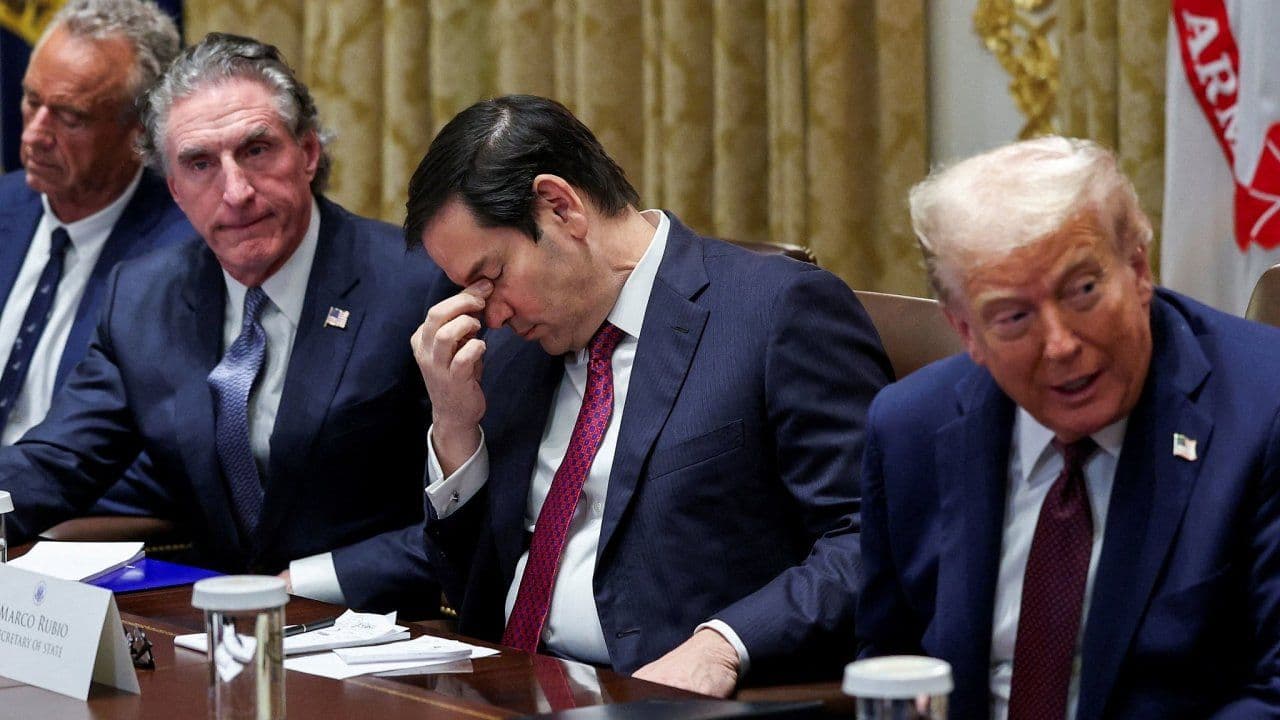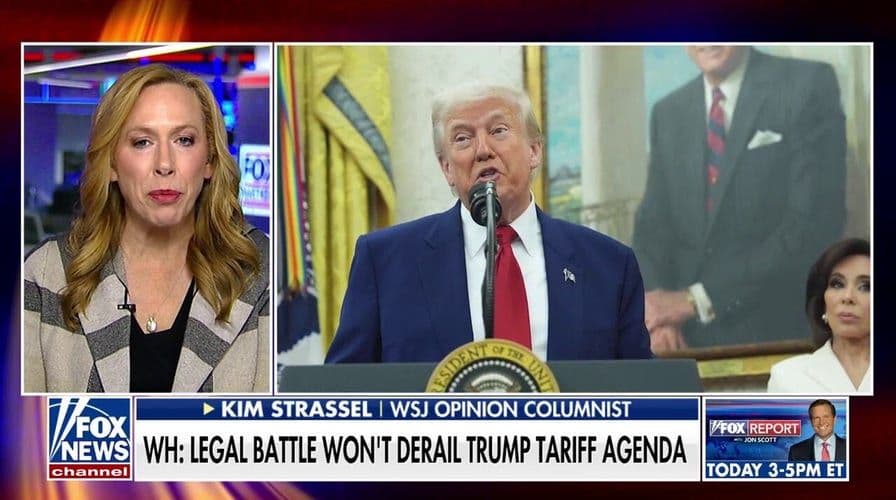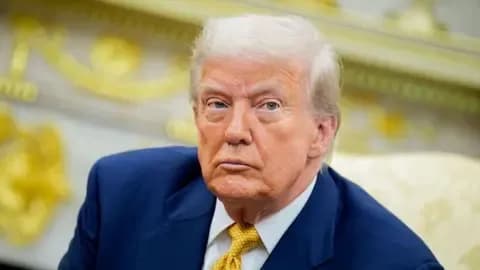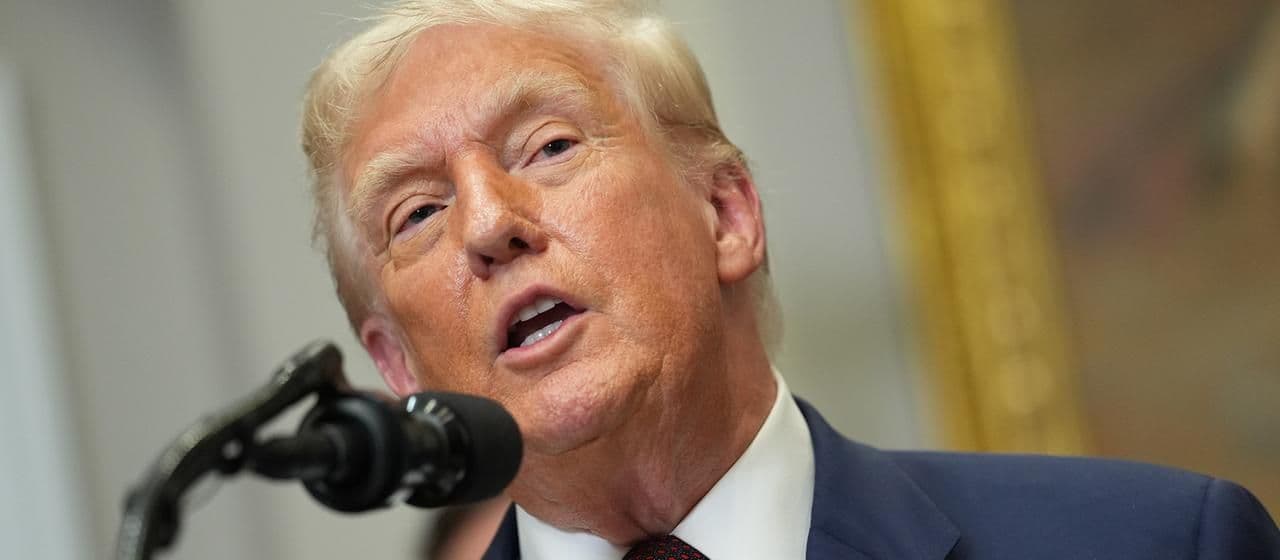The Imperial Presidency vs. The Gavel: Unraveling Trump's Tariff Tangle
Court strikes down Trump's tariffs, igniting a constitutional showdown over presidential power. This ruling redefines executive economic authority, impacting global trade and setting up a Supreme Court appeal.
The Gavel's Verdict: A Blow to Trump's Trade Doctrine
A significant federal appeals court ruling delivered a substantial blow to former President aggressive trade agenda, declaring many of his most punishing tariffs illegal. The U.S. Court of Appeals for the Federal Circuit affirmed a lower court's finding that the president does not possess unlimited authority to impose taxes on nearly all imports, specifically noting that Trump's steep tariffs were "unbounded in scope, amount and duration" and asserted an "expansive authority that is beyond the express limitations" of the law his administration cited. This decision, emerging from the case, marks the most severe judicial setback to Trump's tariff policies to date. While the appellate judges delayed the enforcement of their order until mid-October, allowing the tariffs to remain in place for a Supreme Court appeal, Trump swiftly responded on social media. "ALL TARIFFS ARE STILL IN EFFECT!" he declared, after markets closed for a holiday weekend, accusing the appeals court of political bias. Despite the delay, this ruling signals a pivotal moment, challenging the very foundation of his trade doctrine and setting the stage for a constitutional showdown.
Unpacking IEEPA: The Legal Limits of Presidential Power
At the heart of this legal challenge lies the , a 1970s law that Trump's administration controversially harnessed to impose sweeping duties. Traditionally reserved for targeted sanctions and embargoes against specific nations during declared national emergencies, IEEPA became the linchpin of Trump's strategy to raise revenue and pressure trading partners. His administration cited various emergencies, from trade deficits and fentanyl trafficking to immigration, as justification. However, the appellate court sharply disagreed, ruling it "unlikely that Congress intended, in enacting IEEPA, to depart from its past practice and grant the president unlimited authority to impose tariffs." The court highlighted IEEPA's conspicuous silence on tariffs, noting it "neither mentions tariffs (or any of its synonyms) nor has procedural safeguards that contain clear limits on the president’s power to impose tariffs." This contrasts starkly with other statutes where Congress explicitly delegates such power using "unequivocal terms like tariff and duty," always with "clear limits." The court's meticulous linguistic and structural analysis effectively voided Trump’s broad "Liberation Day" and "reciprocal" tariffs, underscoring a fundamental disagreement over the scope of executive authority.
Global Quakes: Economic Fallout and Diplomatic Repercussions
The reverberations of Trump's tariff policies have been felt globally, triggering economic uncertainty and stoking fears of rising inflation across international markets. This appeals court ruling now adds a new layer of complexity to an already volatile landscape. Before the decision, the Trump administration’s top economic advisers, including Treasury Secretary and Commerce Secretary , had urgently warned the court that any immediate invalidation of the tariffs would unleash "economic chaos" and a "dangerous diplomatic embarrassment." They specifically cited concerns over the fate of existing trade agreements, such as the concessions made by the to avoid even higher U.S. taxes. Trump himself had often insisted his tariffs would make America "rich again," even invoking the specter of the Great Depression should his ability to impose levies be curtailed. With the ruling voiding his baseline "Liberation Day" tariffs and other reciprocal duties, the economic and diplomatic fallout could be significant, impacting not only U.S. trading partners but also the small businesses across that have challenged these tariffs, arguing they are "devastating small businesses across the country." The decision underlines the profound interconnectedness of legal interpretations, economic stability, and international relations.
The Fight Ahead: Trump's Strategy and the Supreme Court Showdown
Despite the appeals court's definitive ruling, the battle over Trump's tariff authority is far from over. The appellate judges, in a strategic move, delayed the enforcement of their order until mid-October, explicitly providing the administration a window to appeal the case to the . This delay was a crucial concession, preventing immediate disruption and allowing for a structured legal escalation. Trump wasted no time in signaling his intent, blasting the court's conclusions in a social media post shortly after the ruling and effectively teeing up the forthcoming appeal. Insiders like , a former senior commerce department official, noted that the administration had been "anticipating this outcome and is preparing a Plan B, presumably to keep the tariffs in place via other statutes." White House spokesman reiterated this resolve, stating that Trump "lawfully exercised the tariff powers granted to him by Congress" and expressing confidence in "ultimate victory." The stage is now set for a high-stakes Supreme Court showdown, where the justices will be tasked with definitively ruling on whether the president possesses the legal right to fundamentally reshape U.S. trade policy through such broad interpretations of existing law.
Beyond Tariffs: Redefining Executive Authority in US Trade
This landmark ruling transcends the immediate issue of tariffs; it represents a critical juncture in redefining the boundaries of presidential economic authority, particularly under the . The court's emphasis on IEEPA's lack of explicit tariff-granting language and procedural safeguards sends a powerful message to future administrations: executive ambition, when pushing the limits of statutory interpretation, will face rigorous judicial oversight. The decision underscores inherent role as the primary architect of trade policy, highlighting that when it intends to delegate tariff authority, it does so with clarity and precision, including explicit limits. This case forces a deeper re-evaluation of the separation of powers in U.S. trade, potentially curbing future presidents' ability to unilaterally impose broad economic measures by simply declaring a national emergency. Whatever the Supreme Court ultimately decides, its ruling will undoubtedly reverberate through future administrations, shaping how they interpret and utilize emergency powers, and ultimately, defining the delicate balance between presidential prerogative, legislative intent, and global economic stability.
Related Articles

The Constitutional Tightrope: Courts Challenge Presidential Trade Emergency Powers

The Constitutional Tightrope: Courts Challenge Presidential Trade Emergency Powers

The Iron Curtain of Commerce: How Courts Are Redefining Trump's Tariff Legacy

The Iron Curtain of Commerce: How Courts Are Redefining Trump's Tariff Legacy

The Gavel's Echo: Unraveling the Constitutional Seismic Shift in US Trade Policy

The Gavel's Echo: Unraveling the Constitutional Seismic Shift in US Trade Policy

The Unfolding Trade Chessboard: Trump's Tariffs and the Global Response
